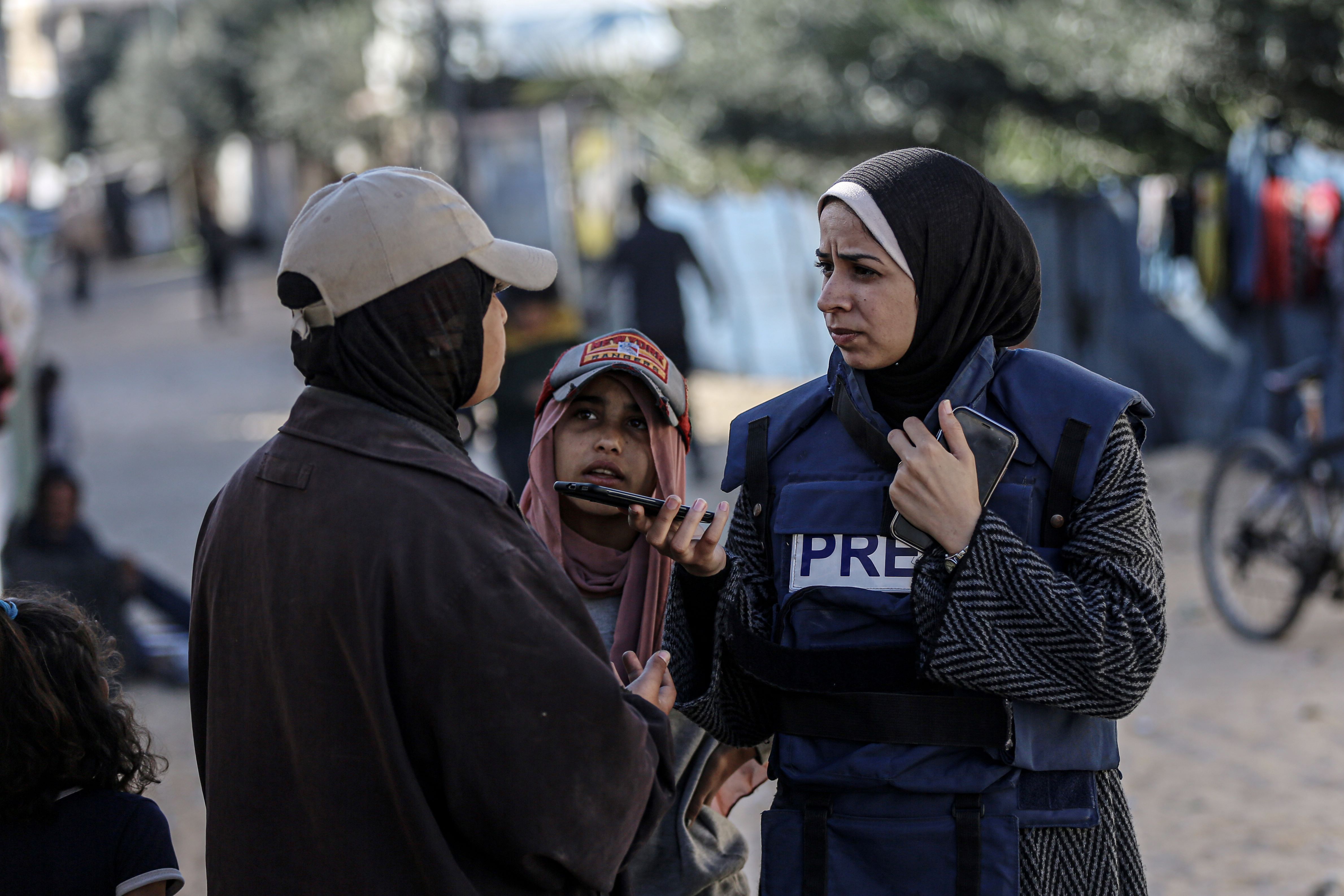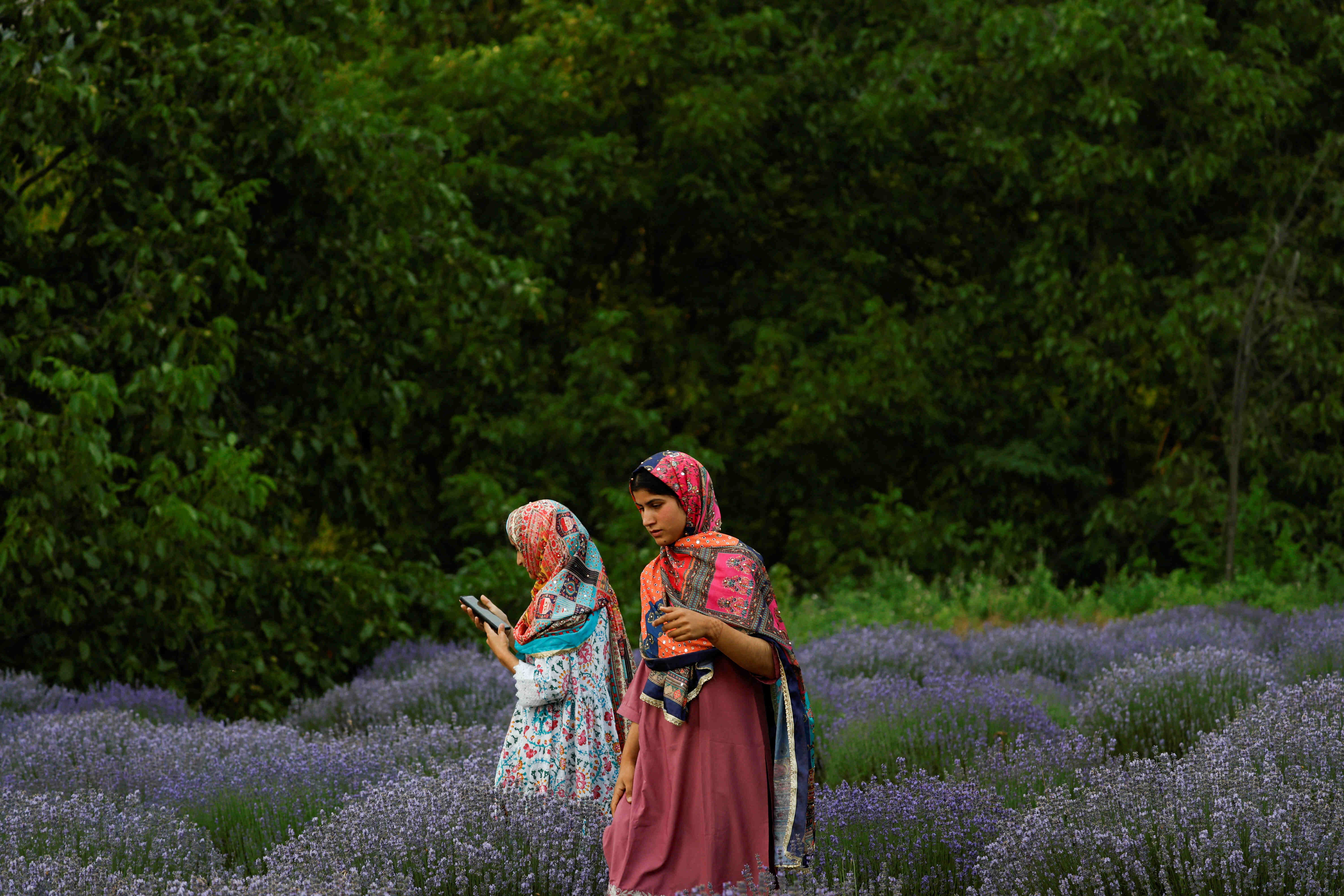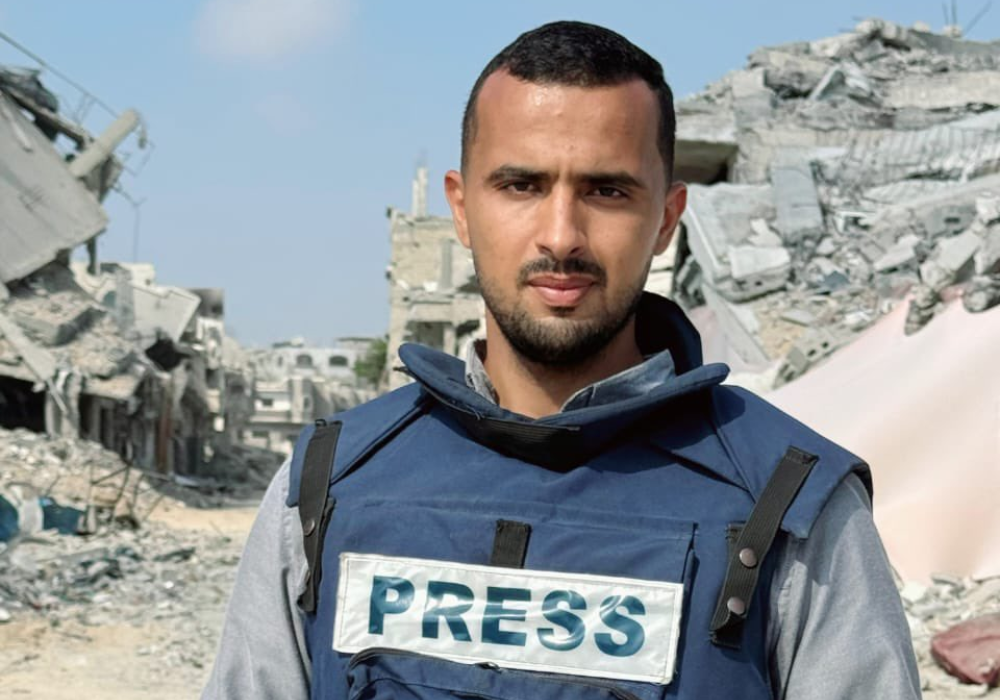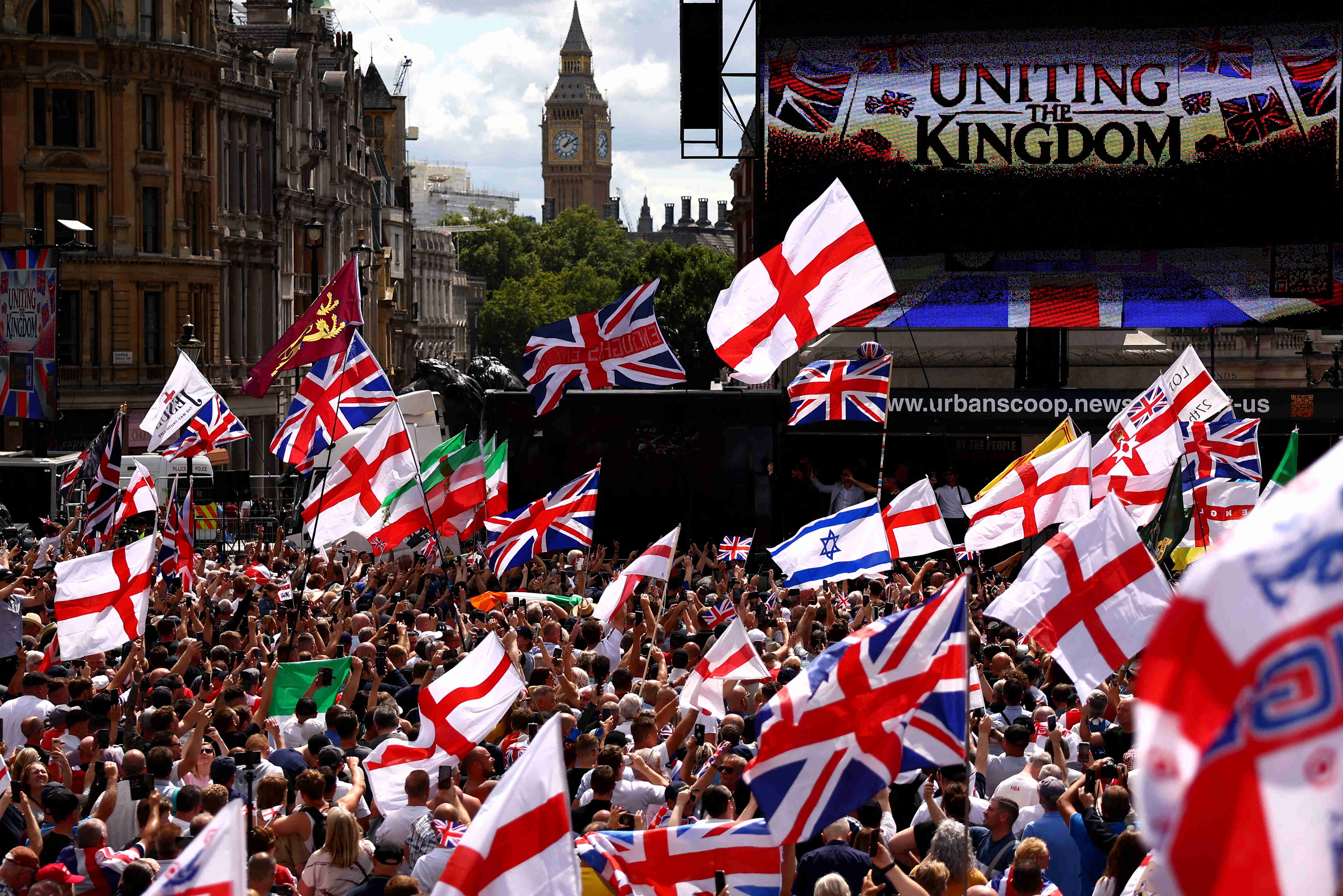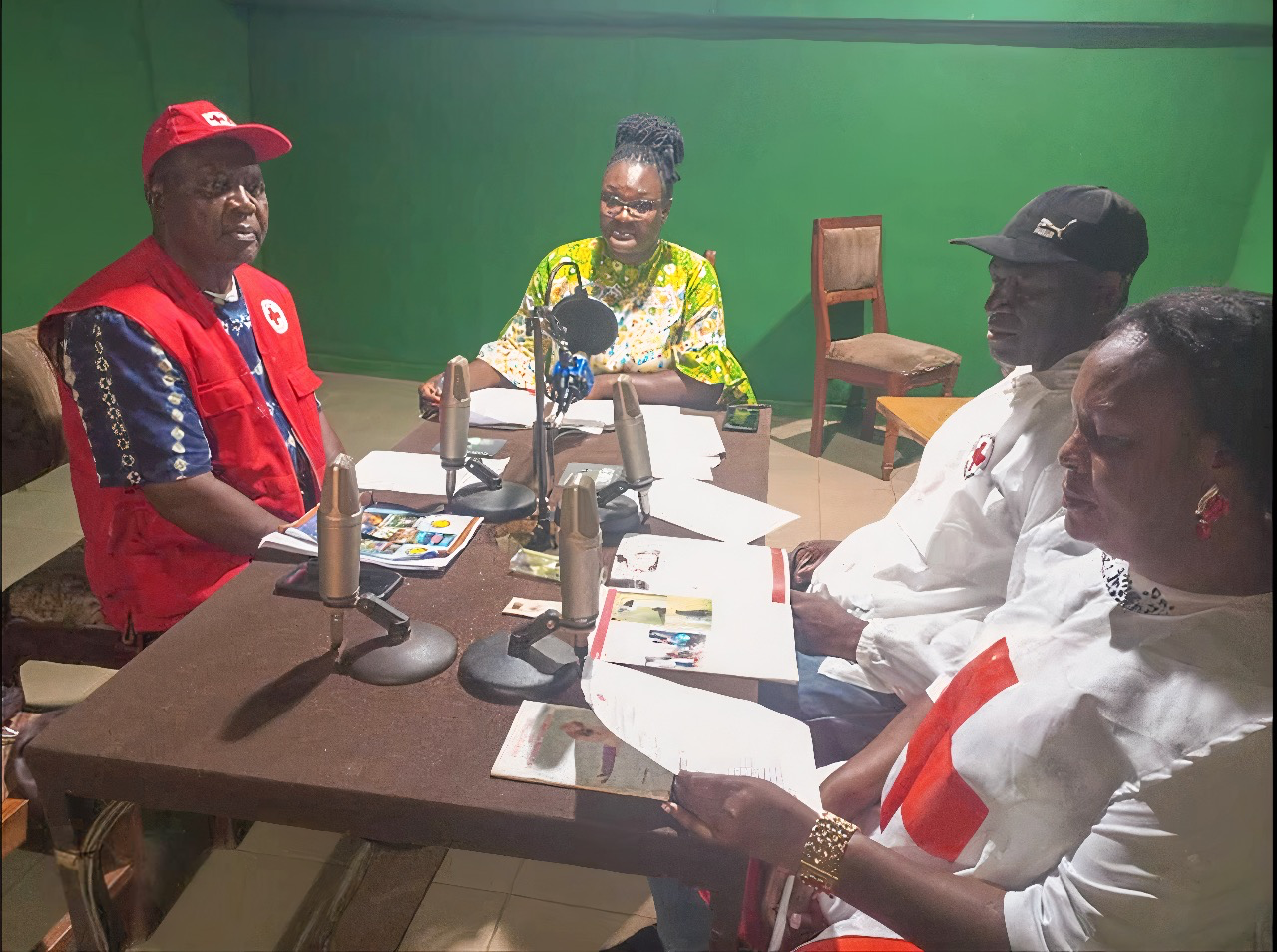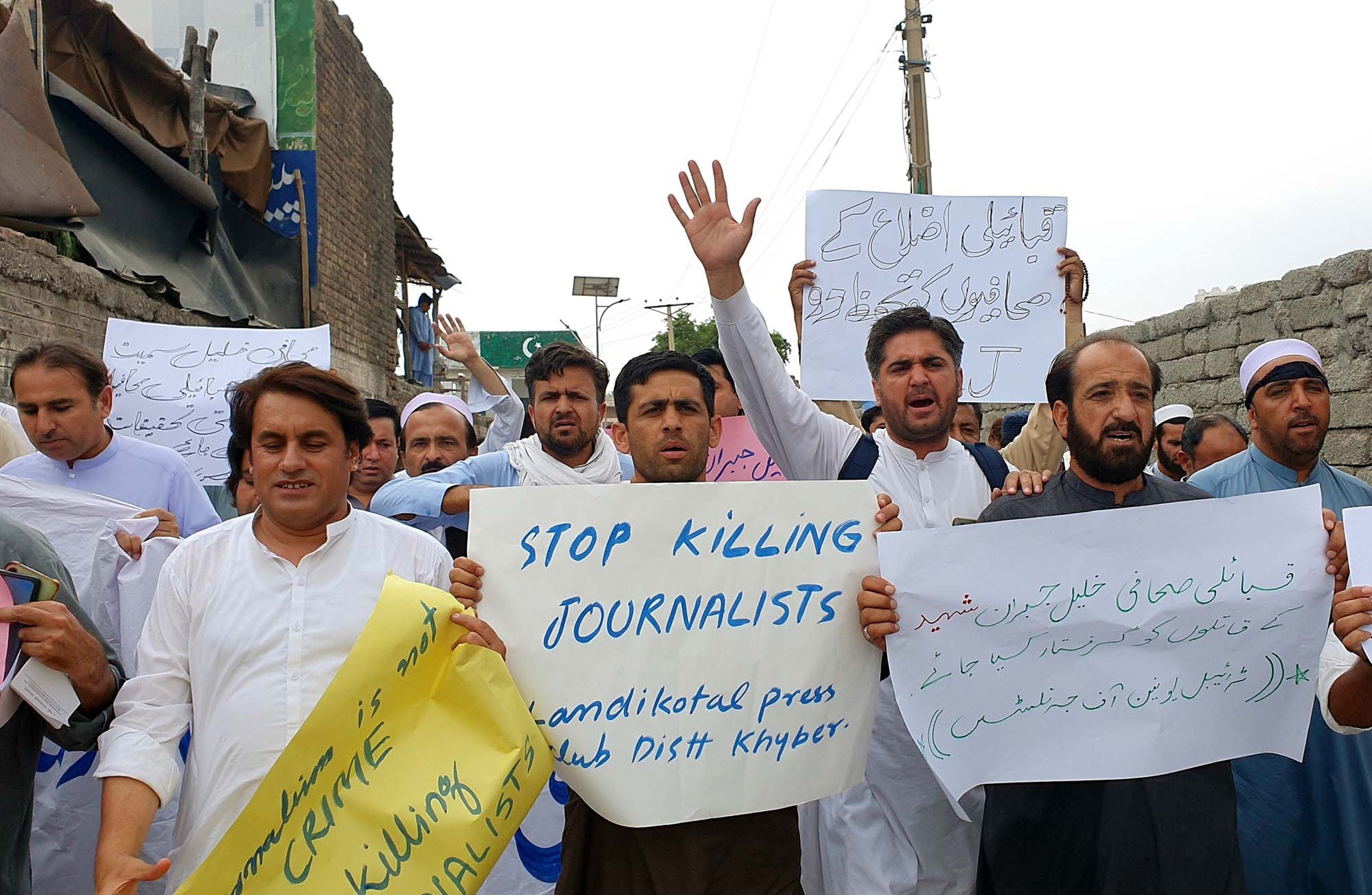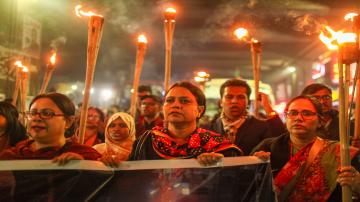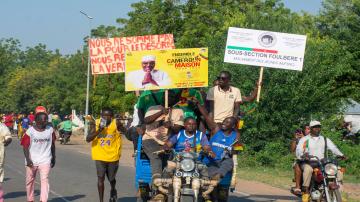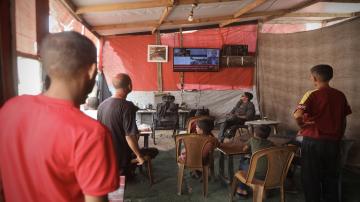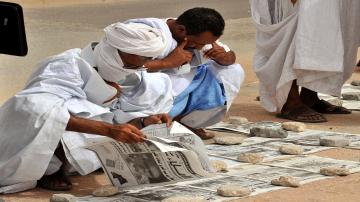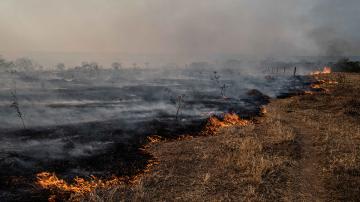Al Jazeera Journalism Review

Public Hostility Toward Legacy Media in Bangladesh
The December 2025 arson attacks on Prothom Alo and The Daily Star marked a turning point for journalism in Bangladesh. As public anger replaces state control as the primary threat, reporters are reassessing personal safety, editorial judgement, and professional credibility in a political transition where journalism itself is increasingly treated as an enemy.
Latest Articles
The Gaza Journalist and the "Heart and Mind" Struggle
Inside the heart of a Palestinian journalist living in Gaza, there are two personas: one is a human who wants to protect his own life and that of his family, and the other is a journalist committed to safeguarding the lives of the people by holding on to the truth and staying in the field. Between these two extremes, or what journalist Maram Hamid describes as the struggle between the heart and the mind, the Palestinian journalist continues to share a narrative that the occupation intended to keep "away from the camera."

India and Pakistan; Journalists building Bridges for Understanding
Amid decades of tension, journalists from India and Pakistan are uniting to combat hostile narratives and highlight shared challenges. Through collaboration, they’re fostering understanding on pressing issues like climate change and healthcare, proving that empathy can transcend borders. Discover how initiatives like the Journalists' Exchange Programme are paving the way for peace journalism and a more nuanced narrative.

Journalists Recount the Final Moments of Ismail Al-Ghoul
Journalists remembering the slain reporter of Al Jazeera in Northern Gaza, Ismail Al Ghoul. "He insisted on continuing his coverage from the northern part of the Gaza Strip, despite the challenges and obstacles he faced. He was arrested and interrogated by the Israeli army, his brother was killed in an Israeli airstrike, and his father passed away during treatment abroad."
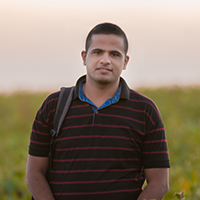
Analysis: Media Disinformation and UK Far-Right Riots
Analysis on the impact of media disinformation on public opinion, particularly during UK riots incited by far-right groups. A look at how sensationalist media can directly influence audience behavior, as per the Hypodermic Needle Theory, leading to normalized discrimination and violence. The need for responsible journalism is emphasized to prevent such harmful effects.

Challenges for Female Journalists in Crisis Zones of Cameroon
Testimonies of what female journalists in Cameroon are facing and how they are challenging these difficulties.

From TV Screens to YouTube: The Rise of Exiled Journalists in Pakistan
Pakistani journalists are leveraging YouTube to overcome censorship, connecting with global audiences, and redefining independent reporting in their homeland.

Opinion
Arsalan Bukhari
Public Hostility Toward Legacy Media in Bangladesh
The December 2025 arson attacks on Prothom Alo and The Daily Star marked a turning point for journalism in Bangladesh. As public anger replaces state control as the primary threat, reporters are…
Salma Saqr
Migration Issues and the Framing Dilemma in Western Media
How does the Western press shape the migration narrative? Which journalistic frames dominate its coverage? And is reporting on anti-immigration protests neutral or ideologically charged? This…
Hisham Zakkout
From News Reporting to Documentation: Practical Lessons from Covering the War on Gaza
From the very first moment of the genocidal war waged by Israel on Gaza, Al Jazeera correspondent Hisham Zaqout has been a witness to hunger, devastation, war crimes, and the assassination of his…
Diaries
From News Reporting to Documentation: Practical Lessons from Covering the War on Gaza
From the very first moment of the genocidal war waged by Israel on Gaza, Al Jazeera correspondent Hisham Zaqout has been a witness to hunger, devastation, war crimes, and the assassination of his colleagues in the field. It is a battle for survival and documentation, one that goes beyond mere coverage and daily reporting.

A Sudanese Journalist in the Grip of the Rapid Support Forces
She was arrested, tortured, nearly raped, threatened with death, and subjected to degrading abuse. Her brother was brutally mistreated in an effort to locate her. In the end, her family had to pay a ransom to secure her release. She sought refuge abroad, but eventually returned to Sudan to continue documenting the war’s toll, particularly in El Fasher, a city now under siege. This is the harrowing account of a Sudanese journalist detained and tortured by the Rapid Support Forces.

Anas Al Sharif; Killed by Israel, but His Final Words Will Echo far Beyond His Death
For over a year and a half, Anas Jamal al-Sharif refused to leave northern Gaza, documenting the destruction and loss that others tried to hide. Tonight, Israel silenced his voice, but his final words, written on April 6, will echo far beyond his death.

Reports
Public Hostility Toward Legacy Media in Bangladesh
The December 2025 arson attacks on Prothom Alo and The Daily Star marked a turning point for journalism in Bangladesh. As public anger replaces state control as the primary threat, reporters are reassessing personal safety, editorial judgement, and professional credibility in a political transition where journalism itself is increasingly treated as an enemy.

Migration Issues and the Framing Dilemma in Western Media
How does the Western press shape the migration narrative? Which journalistic frames dominate its coverage? And is reporting on anti-immigration protests neutral or ideologically charged? This analysis examines how segments of Western media echo far-right rhetoric, reinforcing xenophobic discourse through selective framing, language, and imagery.
Polarised, Intimidated, Silenced: The Media Under Siege in Cameroon’s Election
Cameroon’s 2025 presidential election exposed a troubling paradox: a nation voting under the watchful eye of power, while its press remained silenced. From the arrest of a teenage reporter to bans on political debate and digital manipulation, freedom of expression is under siege, and journalism is on trial.

What Image of Gaza Will the World Remember?
Will the story of Gaza be reduced to official statements that categorise the Palestinian as a "threat"? Or to images of the victims that flood the digital space? And how can the media be transformed into a tool for reinforcing collective memory and the struggle over narratives?

Journalism in Mauritania: Behind the Facade of Press Freedom Indicators
Mauritania holds the top position in the Arab world in the Press Freedom Index published by Reporters Without Borders. However, behind this favourable ranking, the media and journalists face significant challenges, chief among them the ambiguity surrounding the definition of a "journalist" and the capacity of media professionals to fulfil their roles in accountability and oversight. Despite official efforts, the defining feature of Mauritania’s media landscape remains its persistent state of fluctuation.

How Can Journalism Make the Climate Crisis a People’s Issue?
Between the import of Western concepts and terminology that often fail to reflect the Arab context, and the denial of the climate crisis, or the inability to communicate it in clear, accessible terms, journalism plays a vital role in informing the public and revealing how climate change directly affects the fabric of daily life in the Arab world.

